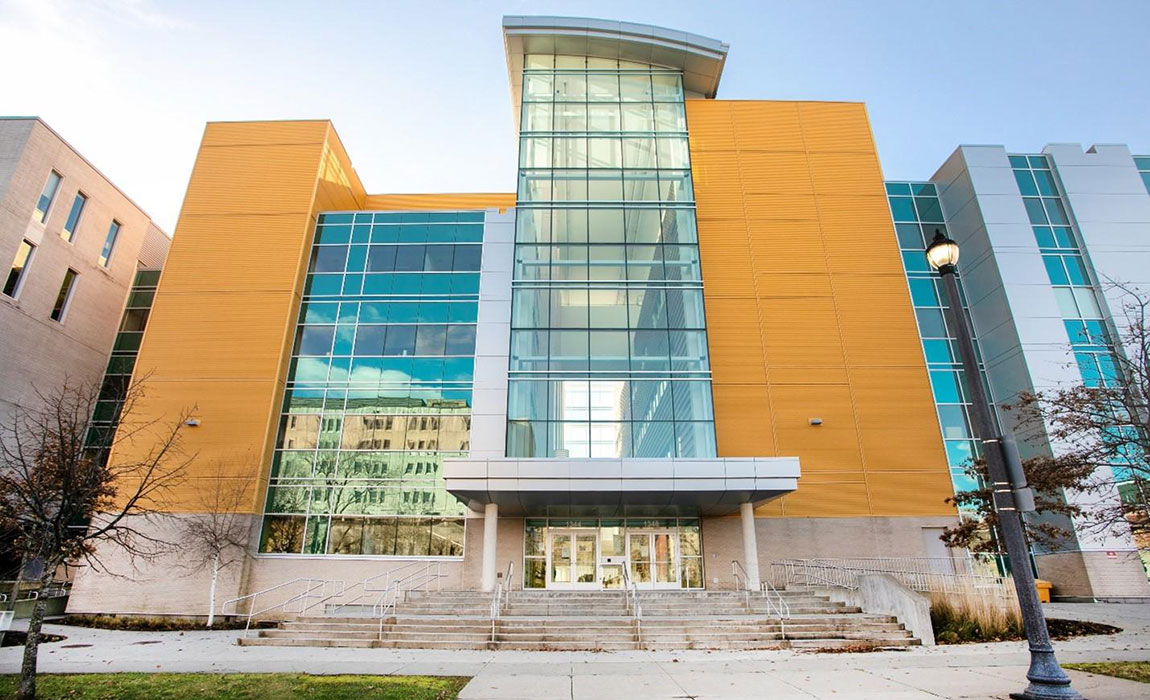Zombie Cells Fuel Green Technology for OzoneBio
Monday, March 14, 2022
Written by Rachel Cooper, rachelcooper.ca
The AscendBio program in Cape Breton helps build agritech and industrial biotech start-ups. It does this through the Verschuren Centre's scientific and technical expertise and infrastructure, and Innovacorp's sector expertise, business support and international networks.
What are zombie cells, and how are they revolutionizing a green technology in Cape Breton?
In early 2021, two young biochemists in Toronto co-founded OzoneBio, a company dedicated to using treated wood waste to produce high-value, emission-free products. Khorcheska Batyrova is OzoneBio's CEO; Anna Khusnutdinova is chief scientific officer.
The two women came to Canada separately to pursue further academic work after earning their PhDs in Russia and working in the same lab. They began working together again at the University of Toronto, where both had secured postdoctoral fellowships.
"We have always focused on biochemistry, converting substrates into something more valuable using enzymes," Khorcheska says. "When we became involved in industrial projects, we saw there was a high demand for zero-emission products like adipic acid."
Adipic acid is the main building block of nylon 66, a high-performance polymer used in everything from automotive parts to running shoes. Adipic acid is therefore very valuable. The problem is its environmental footprint. The conventional process for manufacturing adipic acid releases vast amounts of nitrous oxide into the atmosphere — and nitrous oxide is a greenhouse gas 300 times more potent than carbon dioxide.
Khorcheska and Anna saw an opportunity, because they knew how to make adipic acid with zero emissions. "There is nothing dangerous in our process — we just use biocatalysis and enzymes," Khorcheska says. Biocatalysis is the use of living (biological) systems or their parts to speed up (catalyze) chemical reactions.
Where do the zombie cells come in? "To stabilize our novel enzymes, we leave them inside the cells, where they are naturally stable," she adds. "We don't keep the cells alive, nor do we let them die — we put them into an intermediate state and call them zombie cells."
In 2021, OzoneBio was accepted into IndieBio, a green-technology start-up accelerator in Silicon Valley. "We were facing aggressive deadlines, so we desperately needed a laboratory space," Khorcheska says. "IndieBio reached out to their connections all across Canada. The only lab space we found where people were willing to help us immediately was the Verschuren Centre in Sydney, Nova Scotia."
Khorcheska and Anna were connected with Paul Richards from Innovacorp, who quickly organized a meeting with Beth Mason, CEO of the Verschuren Centre.
"When we first met Paul and Beth, we could see they were results-oriented to attract scientists and new companies to Nova Scotia. That's what brought us to Nova Scotia," Khorcheska says. "They told us we could start to use the lab space right away. We moved to Sydney and soon started hitting our milestones."
A significant milestone was to produce the first five grams of adipic acid with zero emissions; since then they've produced much more. The company also raised US$250,000 from SOSV, IndieBio's parent company. Another US$250,000 will be coming from Genesis Consortium in cooperation with IndieBio.
Right now, OzoneBio makes the world's first and only emission-free adipic acid. In the future, Khorcheska and Anna hope to manufacture and sell nylon 66 as well as compounds such as food and cosmetic additives, and potentially even medicine.
OzoneBio has four staff and is looking to hire three more. "I encourage talented young people to look into start-ups like ours for their career opportunities," Khorcheska says. "We're hoping to grow a team."
March 14, 2022




